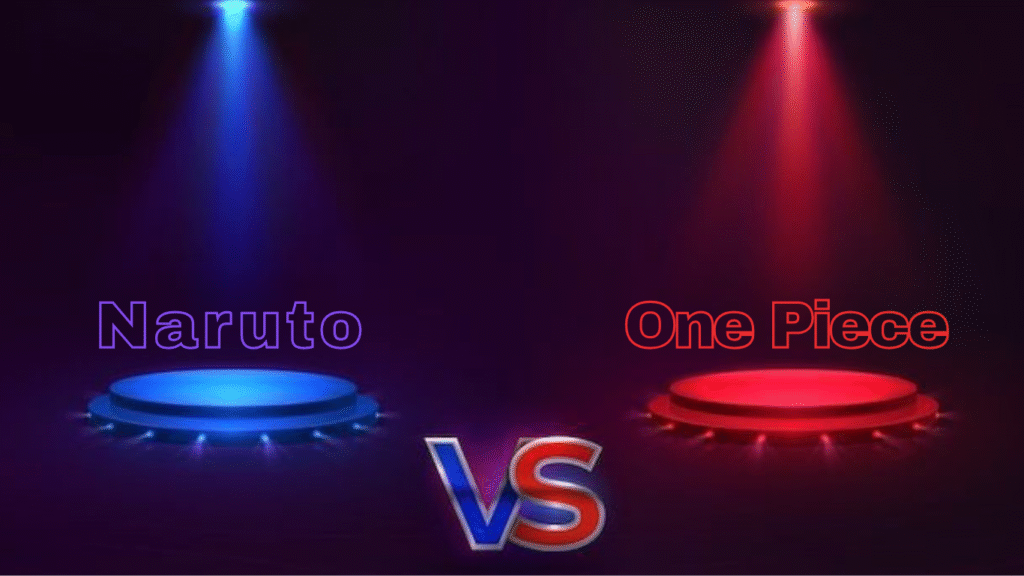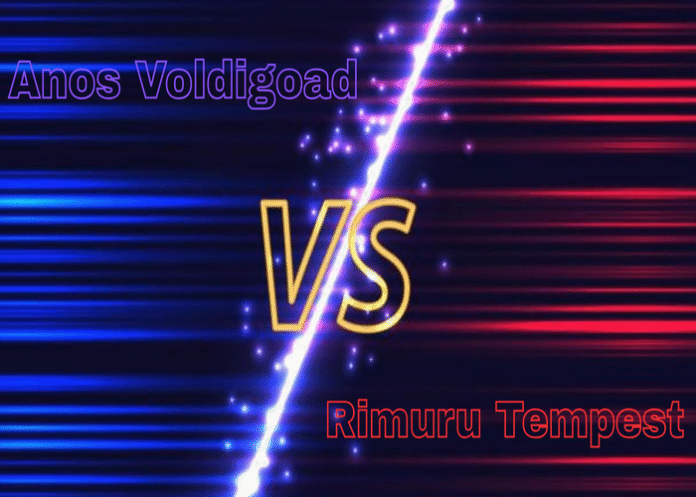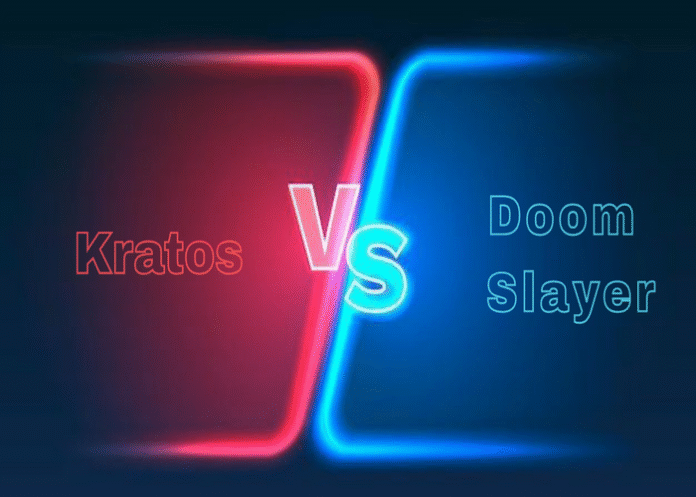
Two titans. One throne. And millions of fans ready to throw hands in the comment section. Whether you’re Team Shadow Clone or Team Straw Hat, one thing’s certain,Naruto and One Piece aren’t just anime; they’re cultural landmarks. But when the dust settles, which one truly reigns supreme?
We’re breaking this down with ruthless logic, nostalgic bias, and a sprinkle of unhinged energy. Let’s dive into world-building, narrative strength, power systems, genre influence, cultural impact, and legacy,no filler episodes, we promise.
World-Building: Ninja Nations vs. Island Hopping Fever Dreams
Naruto’s world is a well-structured geopolitical chessboard of Hidden Villages, ancient clans, and chakra-fueled traditions. It gives us militarized societies with jutsu-infused politics, but while it starts strong, the world feels smaller and less diverse as the story progresses. Once you’ve seen five forests and three deserts, you’ve kinda seen them all.
One Piece throws structure out the window and gives us a planet-sized playground. Sky islands, underwater empires, islands where people age backward, islands where it snows fire,Oda said “rules?” and then ate the Rule-Rule Fruit. Each island feels like a self-contained myth, yet somehow, it all ties into a bigger picture.
Winner: One Piece Creativity on steroids. You never know what you’re getting next, and that’s half the fun.
Narrative: Ninja Drama vs. Pirate Odyssey
Naruto delivers a heartfelt coming-of-age story. From underdog orphan to world hero, Naruto’s arc is deeply emotional, brimming with themes of loneliness, acceptance, and identity. The story shines during emotional peaks like the Pain arc, but fillers and late-stage power inflation dilute some of its impact.
One Piece is storytelling on slow-cooked mode. It takes its time (a lot of time), but everything,everything,matters. A character introduced in episode 44 could become vital in chapter 1000. Oda plays 4D chess with a plot that weaves through decades without losing focus. And when it hits? It HITS. Marineford. Enies Lobby. Wano.
Winner: One Piece Naruto makes you cry; One Piece makes you cry, cheer, scream, and Google timelines.
Power Systems: Chakra Chaos vs. Devil Fruit Madness
- Naruto’s chakra system starts tight. Nature transformations, kekkei genkai, summoning contracts,it’s a beautiful blend of martial arts and mysticism. But then Kaguya shows up and suddenly it’s alien gods, moon prisons, and reincarnation. Things get,complicated. And not in the good way.
- One Piece’s Devil Fruits are brilliant in their absurdity. A man made of sand? A girl who turns into a giraffe? A dude who’s literally just light? Add Haki for balance, and you’ve got a system that’s both goofy and strategic. It leans more into creativity than raw scaling, and somehow, that makes it more grounded.
Winner: One Piece It’s not about who’s strongest; it’s about how they win. And One Piece wins with flair.
Genre Influence: Legacy Builders
Naruto helped define modern shonen. Sasuke vs. Naruto is basically the anime version of Batman vs. Superman. Its emotional beats, rival dynamics, and power-up structures became a blueprint. You can see its influence in My Hero Academia, Black Clover, and Jujutsu Kaisen.
One Piece is the granddaddy of the adventure shonen. The idea of chasing a single dream across hundreds of chapters? That’s One Piece’s DNA. It influenced how long-form anime narratives are written, encouraging world-building over short arcs and cliffhangers over conclusions.
Winner: Tie Naruto popularized the emotional, character-driven shonen. One Piece redefined the scope and ambition of the genre. They’re the yin and yang of shonen influence.
Cultural Impact and Legacy: Who’s Still Running the Game?
Naruto was everywhere. Headbands in classrooms. Sasuke quotes on Facebook. AMVs with Linkin Park. It had an era, and it dominated. Its themes of perseverance and redemption gave it emotional staying power. But its relevance today? Boruto exists, yes, but it’s not exactly lighting the fandom on fire.
One Piece is a juggernaut that refuses to die (in a good way). New chapters, new episodes, Netflix adaptation (that didn’t flop!), movies pulling in bank,Luffy is still swinging. It’s evolving while staying true to its roots. That’s rare. It feels like it still has something to say, and fans are listening.
Winner: One Piece Naruto had its time. One Piece is still having its time.
Iconic Moments and Tearjerkers: Who Crushed Your Soul Better?
Naruto gave us:
- Rock Lee dropping weights
- Itachi’s true story
- Jiraiya’s death
- Naruto’s hug with his dad
- “I’m not gonna run away anymore,”
One Piece gave us:
- Going Merry’s funeral (yes, a boat funeral made you sob)
- Robin screaming “I want to live!”
- Luffy punching a Celestial Dragon
- Ace’s death
- The entirety of Marineford
Winner: It’s personal Do you cry over people or pirate ships? That’s your answer.
Final Verdict
While Naruto was a storm that shook the world and gave anime mainstream respect, One Piece is a tidal wave that never stopped coming. It has sustained greatness longer, innovated harder, and grown deeper without losing its spark. It’s not just an anime anymore,it’s a living legend, still unfolding before our eyes.
But hey, Naruto walked so Luffy could stretch.
Sound off below! Just remember: No matter who you back, we all cried when somebody died, and we all hummed the opening songs like national anthems.
Now go rewatch your favorite arc. You’ve earned it.
Key Points
- Narrative Strength: Naruto emphasizes emotional growth and character arcs; One Piece leans on long-term storytelling with deep foreshadowing and layered mysteries.
- World-Building: Naruto’s world is structured around ninja villages and chakra lore; One Piece offers a wildly imaginative world full of islands with unique cultures, creatures, and climates.
- Power Systems: Naruto’s chakra system gets muddled in later arcs; One Piece’s Devil Fruits and Haki evolve more consistently, offering creative flexibility with fewer contradictions.
- Filler Count: Naruto is infamous for its heavy filler load, especially in the original series; One Piece also has fillers, but they’re shorter and more spread out.
- Iconic Moments: Naruto’s Pain Invasion and Itachi’s truth are unforgettable; One Piece’s Marineford War and Going Merry’s goodbye are legendary in anime history.
- Character Deaths: Naruto frequently kills off beloved characters for emotional impact; One Piece rarely kills major characters, preserving its tone while still delivering heavy moments.
- Legacy & Influence: Naruto helped shape modern shonen tropes and influenced series like Jujutsu Kaisen; One Piece inspired a generation of adventure-based manga like Fairy Tail.
- Cultural Impact: Naruto’s headbands became cosplay staples; One Piece has theme park attractions, live-action adaptations, and even an exhibit at Tokyo Tower.
- Ongoing Relevance: Naruto’s sequel Boruto continues the legacy but struggles with consistent reception; One Piece remains a cultural juggernaut, still dominating charts and discussions.
- Overall Tone: Naruto blends ninja drama with emotional beats; One Piece is a cocktail of slapstick comedy, swashbuckling action, and tearjerker arcs.
Fun Facts
- Eiichiro Oda initially intended One Piece to last only five years,but the story outgrew its original scope and has run for over 25.
- Masashi Kishimoto named Naruto after narutomaki, a ramen topping, blending food culture with his protagonist’s love of ramen.
- Sanji was almost named “Naruto,” but the name was changed to avoid confusion with the already-announced Naruto manga.
- Naruto’s catchphrase “Believe it!” was created for the English dub to match mouth flaps,his original phrase “Dattebayo” has no direct meaning.
- Japan has real-life replicas of the Going Merry and Thousand Sunny ships built for exhibitions and theme parks.
- The ninja hand signs in Naruto are inspired by Kuji-in, a set of symbolic hand gestures from esoteric Japanese Buddhism.
- Oda is known for extreme dedication, reportedly sleeping just 34 hours a night to meet deadlines.
- Kakashi was originally conceptualized with a more comedic, dog-masked design before becoming the stoic cool teacher we know.
- One Piece’s world map is uniquely structured,some theories suggest it’s inspired by flipped or reimagined global geography.
- Naruto was initially a short story about a boy who could turn into a fox, with no ninja involved,later reworked into the full ninja saga.
- Mayumi Tanaka voices both Monkey D. Luffy and Krillin from Dragon Ball, showing her iconic status in anime history.
- Naruto and Sasuke’s final battle mirrors their first,same location, same intensity, and identical hand signs at the end.
- One Piece holds the Guinness World Record for “most copies published for the same comic book series by a single author.”
- “Dattebayo!” was added to give Naruto a distinctive speech pattern,similar to how Luffy’s quirks define his personality.
- Naruto, Luffy, and Goku officially appeared together in the Dream 9 Toriko x One Piece x Dragon Ball Z Super Collaboration Special, a rare crossover event aired in 2013.

